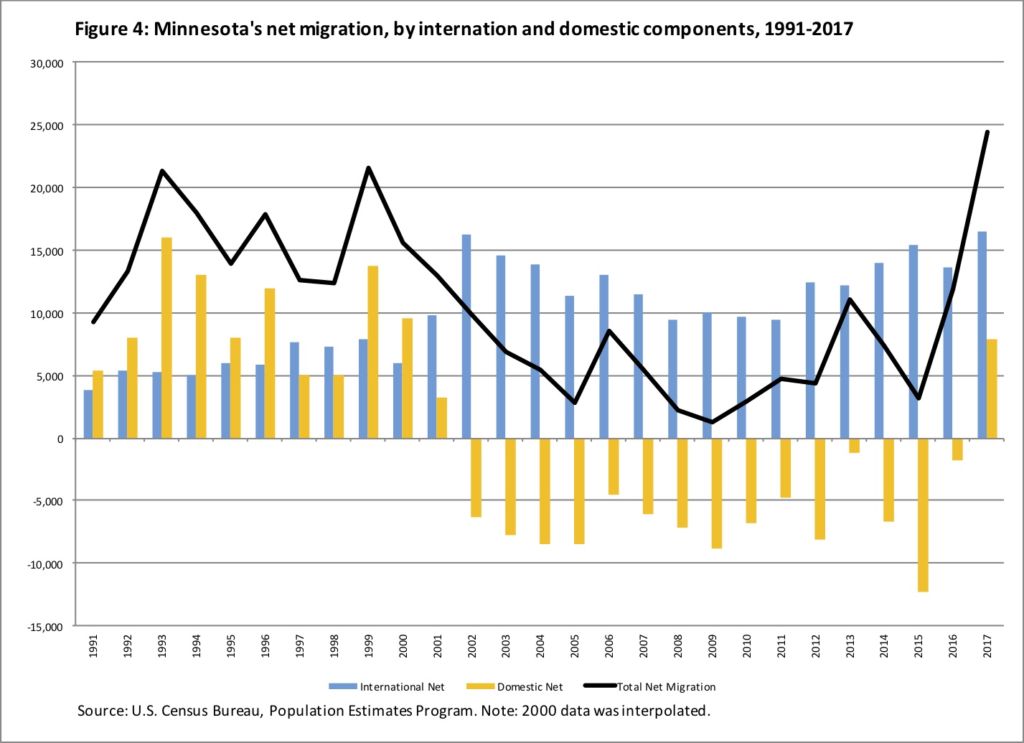My productive visit to St. Cloud to talk about the refugee resettlement program
I spent over an hour with reporter Jenny Berg at the St. Cloud Times yesterday before speaking to a group of citizens about the impact of the State Department’s refugee resettlement program.
I wanted to invest time with the leading newspaper in that region of the state in hopes of starting a productive conversation about how refugees from Somalia are changing the St. Cloud area.
The article published this afternoon is a fair and accurate reflection of what I said (though I said more), and the tenor of the evening. That is a good thing; the press can be rough with citizens who do not go along with “PC views”, and practice what I call “happy talk” about the refugee program.
Good people are genuinely dismayed about what has happened to their home town, and looking for information as well as an acknowledgement that the situation is challenging. I also wanted to hear what is happening for myself in St. Cloud. That is why I went.
Here are some excerpts from the article:
Attendees cited concerns such as families leaving the city and school district due to the increase of people who do not speak English, the impact of refugees on housing and the tax base, female genital mutilation and not feeling heard by local elected representatives such as city councils or school boards.
Crockett asked the attendees if they thought the majority of the people in the community feel this way. The consensus among the room was they feel they are the “silent majority.”
“I think the worst thing you can do is to have elected officials and ministers and other leaders in the community shaming the people of St. Cloud who are expressing reservations about it,” Crockett said. “As long as they are expressing those reservations in a way that is civil and helpful, I think that those feelings should be acknowledged.”
Having served for eight years on my city council, I encouraged residents to find good candidates and use the power of their vote to get a new city council and mayor. I acknowledged that the democratic process was hard work but think it is their best tool, short of voting with their feet.
She said she first got interested in immigration when she saw a state demographer’s chart showing the state’s net migration by international and domestic components. In 2002, the state saw growth from international people but lost residents that were established here.
This is the famous Figure 4 (below), my data obsession; we have not solved what happened in the early 2000’s but it has something to do with Minnesota being the Number One Destination for Refugees in the U.S. and other bad policies that chase people out of the state. So while we are increasing the cost of government by expanding the welfare state, we are shrinking the tax base.

Crockett has publicly called for a moratorium on refugee resettlement to allow time for refugees and communities to get acclimated, as well as allow time to study the costs of refugee resettlement.
She also stresses that refugees are here legally.
“This is something I like to emphasize. Refugees are here legally. They are not illegal, and I think people need to know that because they kind of calm down,” she said. “Our government has invited these people in, so don’t get mad at them. It you don’t like it, call your congressman.”
Crockett added that Minnesotans are “killing with kindness” — stifling those from achieving success by a dependence on welfare.
I explained that the Trump State Department is actually vetting refugees, so the numbers of people coming to the U.S., and Minnesota are way down (from a projected 110,000 under Obama to an expected 20,000 or less).
In December, Lutheran Social Service reported it had 24 arrivals so far in the fiscal year and expected a dozen more in the coming months in Minnesota. That number is far from the expected 225 in St. Cloud and 200 in the Twin Cities for the fiscal year.
“The good news is those numbers are down, and I think that gives everyone breathing room,” Crockett said. “This is something to celebrate. It means that more likely this will be a good story someday.”
She called for action, not anger, in reacting to the “strangers in our midst.”
“We are called to welcome them,” Crockett said.
But I also “encouraged residents to demand all those in the community live by the community’s rules of laws and norms: Polygamy is illegal. Female genital mutilation is illegal. Supporting one’s family through employment is valued.”
In other words, it is more than OK to insist that refugees, whatever their cultural habits or religion, follow the law and adopt American habits based on our Judeo-Christian culture. (I acknowledged that there is a crisis in the American culture right now, and that it is a hard time for Americans to serve as role models for anyone new to our country.)
I promised to return to St. Cloud to continue the conversation. Our treatment by Congress and presidents back to George H. W. Bush has been downright shabby. The refugee resettlement program is a federal program; it was supposed to be paid for by federal tax dollars. Instead, the bulk of the funds and hard work come from state and local funds, with the burden on communities like St. Cloud. It sets people up for conflict with refugees rather than success.
We must insist that Congress do its job and revisit this program.